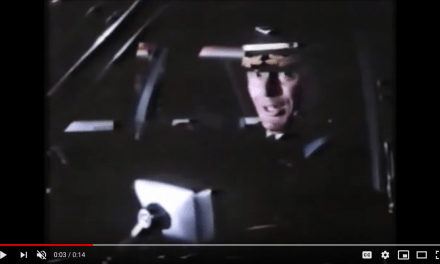
BBC2’s Big Allotment Challenge pushes the TV challenge format to breaking point. This six-part series pits nine contestant pairs against each other each week in three contests: growing a prize specimen; arranging a bouquet; preparing or preserving their produce. The nine contestant pairs are a well-chosen range of contemporary allotmenteers, from the Shoreditch-bearded hobbyists and nature enthusiasts to traditional competition growers and those producing to supplement their diet. So far, so Bake-off. Big Allotment Challenge is a series that foregrounds the best of everyday Britain and the recent renaissance of allotment-holding. It has many of the same values of solidarity and companionship, ruefully realistic self-assessment and generosity in judgements. Allotmenteers share a sense common adversaries: soil, blight, weather. They share techniques and pass around surplus produce and seeds. The series manages (just) to balance the often conflicting uses to which people put their allotments: growing for competition and shows (where taste is a minor issue); growing for sustenance; growing organically or growing for maximum chemically enhanced yield; growing for the pleasures of being outside and contact with nature.

But there is one difference. People bake on the day, for that day. The allotment holders were working for sixteen weeks last summer before the any of the elimination rounds were filmed. At the end of each episode, the losing pair are marched out the garden, never to be seen again. This is harsh to say the least. They have worked alongside all the others, taking bare earth to a highly productive plot. As an allotment holder myself, I know how hard that is. I envy these contestants for their neatly dug, pre-prepared plots in a former kitchen garden. My unyielding patch of clay is more suited to brick production than the ‘fine tilth’ that is demanded on seed packets. These people may have been really pampered by the production team at Silver River. Nevertheless, they exercised skill and muscle in producing everything we see each week.

So why is one couple eliminated every week? Why not a structure of cumulative scoring, with a ‘leaderboard’ (where did that word come from?) and all that stuff: more of the Strictly and less of the Masterchef perhaps?
Elimination raises some difficult questions when applied to the slow cumulative effort of growing. What happens to the plots when the eliminated contestants have left the compound? What happens to the produce which, in most cases, is clearly grown to be eaten?
I put these questions to the Executive Producer Daisy Goodwin, for whom this is clearly a cherished project which she was fortunate to have commissioned. There are, it seems, about 350,000 allotment holders in the UK. Even if we all had been watching with our partners, this is not a promising core figure for ratings success. But then, BBC2 is the home of gardening shows, which pull much bigger audiences than there are gardeners actively pulling weeds. In the event, the first episode had an audience of 2.5 million (or 12%), easily outranking Embarrassing Bodies (Channel 4) and Nightmare Neighbours Next Door (Channel 5), proving that gardening shows are the comforting mid-evening fare for the discerning herbivore viewer.
From Goodwin’s reply, it seems that it was the BBC’s inclination to eliminate rather than to have a cumulative scoring system. We all know why: less than 40% of viewers will watch more than one episode of a series like this. So unless the series really grips the viewing nation, a complete narrative of hope-preparation-pitfalls-success/failure has to be provided in every episode. So Strictly can assume a substantial carry-over of audiences and even audience involvement, but a show like this cannot. What is more, we can’t judge the produce like we can claim to judge the dance performances either, we have to rely on the tastebuds of the professionals and their ability to apply the arcane rules of competitive vegetable production and flower arranging.
So what happens to the plots and the produce? Well, this is where it gets less satisfying, where format choices get in the way of the human dimension. I had hoped that Goodwin would quietly admit that the rejected contestants continued to labour and benefit from their produce, if not from their brief moment of TV exposure. But no. “The allotments of the losers are maintained by our team and the produce is given to charity”. That’s not very nice, is it? … especially if they were growing to eat. An allotment grower gets attached to every misshapen carrot and imperfect cabbage: that’s one of the reasons for putting in the work.
The best of competition format television is able to articulate and discuss values through a popular form. This is why many UK formats do well in the US. Produced within a public service ethic, as Big Allotment Challenge clearly is, they maintain a modulated approach to the competitive aspect of the challenge format, injecting a real concern for the attitudes and underpinning values of the contestants. This is why they tend to sustain their runs over long periods as well: they have more background substance. The Great British Bake-off was welcomed precisely because it reasserted this approach to values (of solidarity even in a competitive situation), which was seen as being eroded by the harsher form of the Cowellised talent contest. So it is a pity that BBC2’s commissioners did not trust this public service approach a little more, and look beyond an elimination structure for Big Allotment Challenge.

JOHN ELLIS is Professor of Media Arts at Royal Holloway University of London. He leads the ADAPT project on the history of technologies in TV, funded by a €1.6 million grant from the European Research Council. He is the author of Documentary: Witness and Self-revelation (Routledge 2011), TV FAQ (IB Tauris 2007), Seeing Things (IB Tauris 2000) and Visible Fictions (1984). Between 1982 and 1999 he was an independent producer of TV documentaries through Large Door Productions, working for Channel 4 and BBC. He is chair of the British Universities Film & Video Council and also oversees the Royal Holloway team working on EUscreen. His publications can be found HERE.





![SHOW, [DON’T ASK] DON’T TELL: QUEER REPRESENTATION IN STAR TREK: ENTERPRISE by Melissa Beattie](https://cstonline.net/wp-content/uploads/2025/04/QUEERENT-440x264.png)